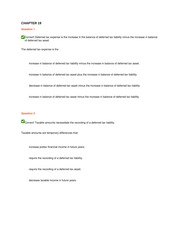Virtual financial consultants (aka robo advisors) can offer assisted advisory solutions for wealth managers and investment advisors. The robo-advisors use algorithms to automate portfolio management, charge low portfolio management fees, and provide a range of services, including tax strategies, access to human advisors, and a variety of portfolio options. Cybercrime costs the world economy around $600 billion annually (that is 0.8% of the global GDP).
Main results of the bibliometric analysis
It aims to quantify a portfolio’s potential vulnerabilities and sensitivities to various risk factors. Exposure modeling involves analyzing the relationship between the portfolio’s holdings and different market variables to assess how changes in those variables can affect the portfolio’s value or performance. The cost of eCommerce fraud alone is projected to surpass $48 billion worldwide in 2023, compared to just over $41 billion in the previous year. Furthermore, fraudsters are becoming more sophisticated and difficult to identify using conventional, rule-based approaches, making it challenging for financial institutions to meet anti-money laundering compliance requirements. AI is proving its value to the finance industry in detecting and preventing fraudulent and other suspicious activity. In 2022, the total cost savings from AI-enabled financial fraud detection and prevention platforms was $2.7 billion globally, and the total savings for 2027 are projected to exceed $10.4 billion.

Improved customer experience
- Yet another exciting facet is the use of reinforcement learning-based AI models, which can adjust to dynamically changing market conditions.
- You’ll be developing products with innovative technologies, providing value and inspiration for customers, and getting inspired in return.
- Many banks have found that implementing AI requires financial investment and machine learning expertise and tools to fine-tune models on proprietary data to maximize their investments and achieve their goals.
- Plus, AI technologies and RPA bots can handle banking workflows more accurately and efficiently than humans.
- The market for AI could equal “the internet and cloud computing combined,” he said, noting the speed of change and timing of Nvidia’s ascent is different from Cisco’s.
- Additionally, as remarked by Ernst et al. (2018), whilst industrial robots mostly perform manual tasks, AI technologies are able to carry out activities that, until some years ago, were still regarded as typically human, i.e. what Ernst and co-authors label as “mental tasks”.
Kearney had estimated Robo-advisers’ to reach USD 2.2 trillion in five years—equating to 5.6 percent of all American investments by 2020. Hence, future contributions may advance our understanding of the implications of these latest developments for finance and other important fields, such as education and health. The use of AI in the cryptocurrency market is in its infancy, and so are the policies regulating it. As the digital currency industry has become increasingly important in the financial world, future research should study the impact of regulations and blockchain progress on the performance of AI techniques applied in this field (Petukhina et al., 2021).

AI and volatility forecasting
Similarly, trading and digital platforms are examined in 16 papers that deal with derivatives and cryptocurrencies. The adoption of AI is likely to have remarkable implications for the subjects adopting them and, more in general, for the economy and the society. In particular, it is expected to contribute to the growth of the global GDP, which, according to a study conducted by Pricewater-house-Coopers (PwC) and published in 2017, is likely to increase by up to 14% by 2030. Moreover, companies adopting AI technologies sometimes report better performance (Van Roy et al. 2020).
A new frontier in artificial intelligence and for Finance
Though it is not hard to find general AI classes and non-technical finance classes, it is not easy to find these two disciplines successfully integrated. Moreover, AI in investment management is different and more complex than AI applied to non-investment disciplines, and the tools are rapidly evolving. Deloitte refers to one or more of Deloitte Touche Tohmatsu Limited, a UK private company limited by guarantee (“DTTL”), its network of member firms, and their related entities. In the United States, Deloitte refers to one or more of the US member firms of DTTL, their related entities that operate using the “Deloitte” name in the United States and their respective affiliates. Certain services may not be available to attest clients under the rules and regulations of public accounting.
Kasisto is the creator of KAI, a conversational AI platform used to improve customer experiences in the finance industry. KAI helps banks reduce call center volume by providing customers with self-service options and solutions. Additionally, the AI-powered chatbots also give users calculated recommendations https://www.quickbooks-payroll.org/ and help with other daily financial decisions. Simudyne’s platform allows financial institutions to run stress test analyses and test the waters for market contagion on large scales. The company offers simulation solutions for risk management as well as environmental, social and governance settings.
AI can assist financial institutions with automating processes on regulatory compliance. Thus ensuring that there is adherence to complex regulations, reducing the risk of non-compliance. For instance, AI-powered systems can flag potential violations after analyzing transactions, customer data, and other relevant data. For example, the banking industry still has human-based processes and is paperwork-heavy. Robotic process automation (RPA) can eliminate time-intensive and error-prone work, such as entering customer data from contracts, forms, and other sources.

Open access funding provided by Università Politecnica delle Marche within the CRUI-CARE Agreement. We are granted with research funds by our institution which would allow us to cover the publication costs. 2 provides a visual representation of the citation-based relationships amongst papers starting from the most-cited papers, which we obtained using the Java application CiteSpace. Learn how AI can help improve finance strategy, uplift productivity and accelerate business outcomes. Elevate your teams’ skills and reinvent how your business works with artificial intelligence. Explore the free O’Reilly ebook to learn how to get started with Presto, the open source SQL engine for data analytics.
These models can instantly consider factors such as historical market data, current market behavior, pricing models, proprietary research, and performance indicators. Valuing a portfolio is crucial for assessing its performance, making investment decisions, and reporting accurate financial information to stakeholders. However, manual valuation can be challenging as various factors influence portfolio value, including market data, pricing models, time horizon, and allocation of diverse investment types such as stocks, bonds, mutual funds, derivatives, and other securities. Financial Services institutions are looking to AI to help them improve customer experience, grow revenue, and improve operational efficiency. Many banks have found that implementing AI requires financial investment and machine learning expertise and tools to fine-tune models on proprietary data to maximize their investments and achieve their goals.
The volatility index (VIX) from Chicago Board Options Exchange (CBOE) is a measure of market sentiment and expectations. Forecasting volatility is not a simple task because of its very persistent nature (Fernandes et al. 2014). According to Fernandes and co-authors, free cash flows the VIX is negatively related to the SandP500 index return and positively related to its volume. The heterogeneous autoregressive (HAR) model yields the best predictive results as opposed to classical neural networks (Fernandes et al. 2014; Vortelinos 2017).
Banks can create a more personalized experience for customers through customized products and services, which can lead to increased customer satisfaction and retention. Ultimately, banks that invest in data analytics and AI technology will continue to thrive in the digital age. Conversational AI for finance has myriad benefits in the context of customer service. https://www.accountingcoaching.online/bookkeeping/how-revenue-affects-the-balance-sheet/ Picture this—with an increasing customer base, there are large volumes of customer queries and requests. Thus, employing AI-powered chatbots and virtual assistants can help to handle massive volumes in real-time. The virtual assistants have underlying use of natural language processing (NLP) capabilities, which can deal with complex financial questions.